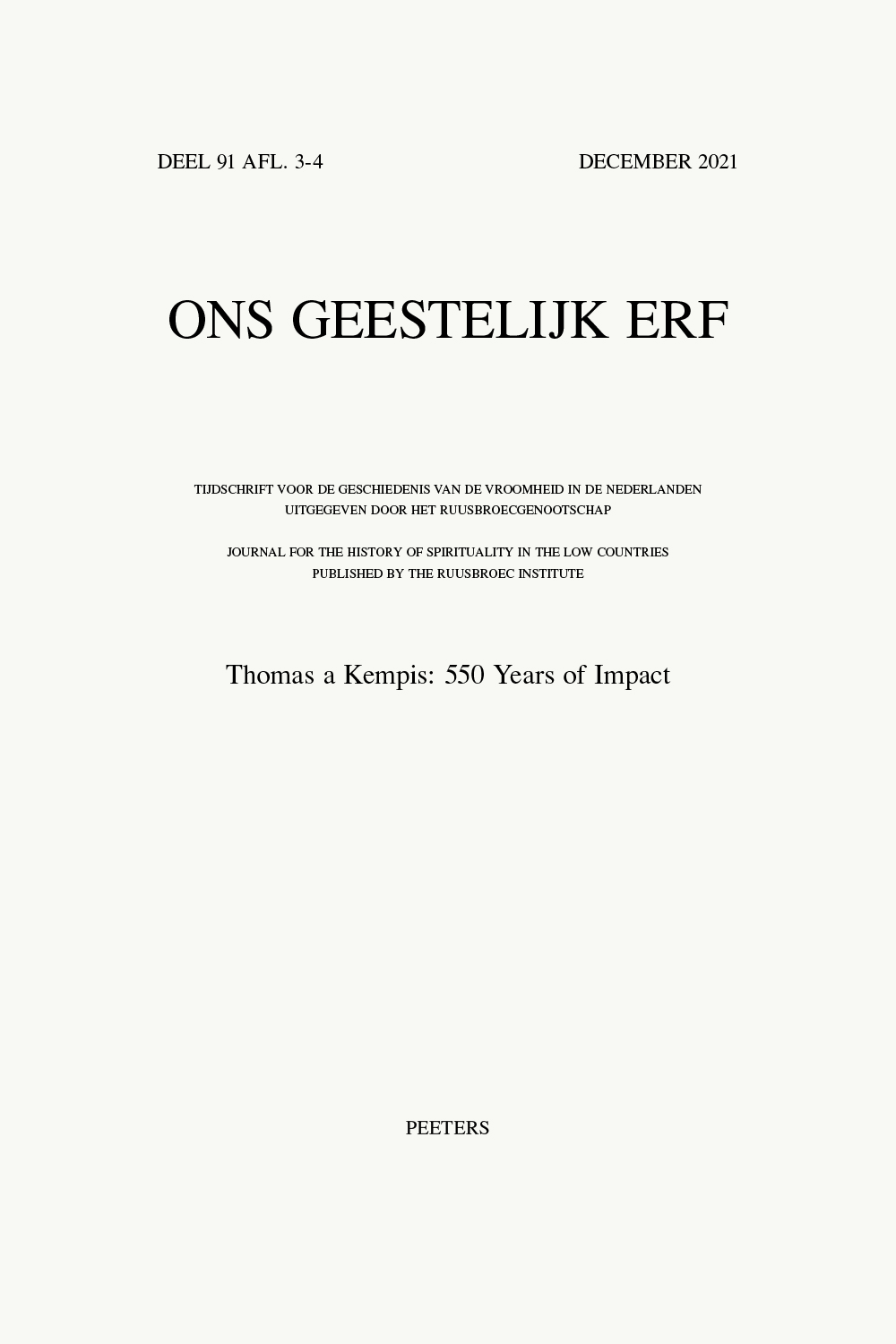 previous article in this issue previous article in this issue | next article in this issue  |

Preview first page |
Document Details : Title: Het leven van Suster Bertken Subtitle: Kanttekeningen bij recente beeldvorming Author(s): VAN AELST, José Journal: Ons Geestelijk Erf Volume: 72 Issue: 3 Date: september 1998 Pages: 262-272 DOI: 10.2143/OGE.72.3.2003369 Abstract : The writings of Sister Bertken (1426/27 - 1514) are usually considered in the context of her life as a recluse. Several aspects of the received view of Bertken need to be reconsidered in the light of archival evidence. For example the archives show that the bishop of Utrecht did not follow one of the general rules concerning inclusion which prescribe a probationary period in a convent of six years before the inclusion was effected, but rather devised his own rules. Accordingly it is even possible that Bertken went into solitary seclusion without a probationary period and if she was tested in a convent before the inclusion, she may in fact have stayed there for less than six years. Moreover, there is no substantial evidence that she spent this possible probationary period in the Utrecht Jerusalem Convent as is stated as fact in recent studies. It has been conjectured that her illegitimate birth as the daughter of a canon shaped the feelings of guilt that she expresses in her works. However it is known that being an illegitimate child was a highly accepted state at the end of the Middle Ages. Her self-accusations can better be interpreted as expressions of compunction, that was a common practice in the spiritual movement of the Modern Devotion. |
|


